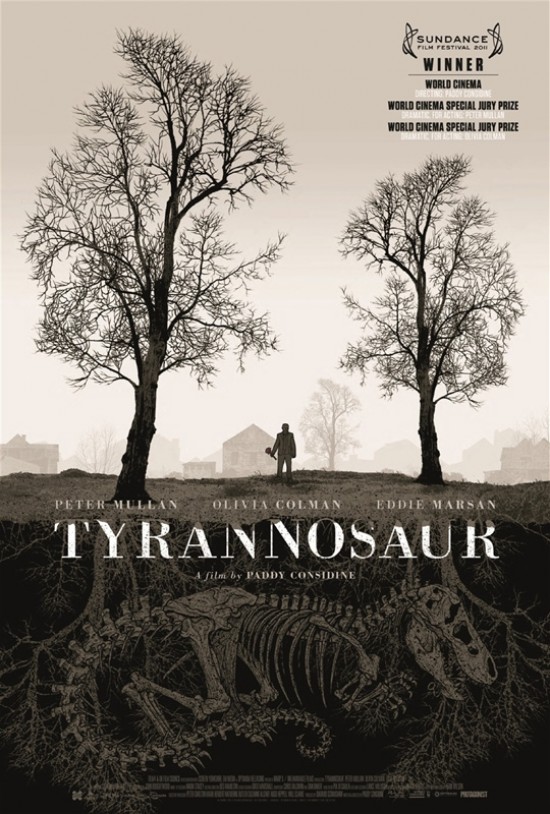by Gordon

Directed by: Clint Eastwood
Released: 2003
Rating: R [language and violence]
Runtime: 138 min.
Main Cast: Sean Penn, Tim Robbins, Kevin Bacon, Laurence Fishburne
Rotten Tomatoes: 88% IMDB: 8.0/10

I can’t quite fully embrace the level of acclaim garnered by this movie…a great movie I’ll admit. And please don’t mistake my less-than-ecstatic review for being a jab at the film in any way. It’s a very well done, well acted, and well scripted movie…it no doubt deserves to be well received. It didn’t touch me as significantly as it seems to have in higher film critic circles, but admittedly, the film may just be “bigger” than me…a higher form of art than my emotional brain is capable of processing. The emotional brain I possess wished for a slightly different storyboard (conclusion especially), but all in all it very well may deserve the praise it’s achieved.
Set in Boston, the film opens with three young friends, Jimmy Markum, Sean Devine, and Dave Boyle, who after playing a game of hockey in the street, somewhat relucantly decide to carve their names in newly drying cement on the side of the road. A car pulls up, at which point a self-professed police officer (not in uniform) scolds the boys for their actions, and orders Dave into the car (also occupied by a man in a priest’s clothing), and drives off. The two men (we see in a telling snippet) are in fact mere child molesters keeping Dave locked in the basement. He fortunately escapes, but the sinister effect on the young boy transcends his youth and manifests into his adult life as the film quickly shifts twenty-five years later, all three friends now living very different lives and speaking little to each other of the past, despite the fact that they still live on the same somewhat haunted streets of Boston.
Jimmy (Sean Penn) is an ex-con running a neighborhood store whose daughter Katie (Emmy Rossum) is secretly dating Brendan Harris with plans to elope. Jimmy hates Brendan, as it’s later revealed that he never liked his father either. Dave (Tim Robbins) is a blue collar worker living near Jimmy who’s still affected by his abduction, with a wife and young boy he often has trouble relating to.
The events of the movie revolve around the murder of Jimmy’s daughter Katie, occurring on the same night that Dave sees her in a local bar, later returning home with blood on his hands and clothes. He tells wife Celeste (Marcia Gay Harden) that he fended off a mugger and possibly killed him. Overseeing the investigation is their old friend Sean (Kevin Bacon) with partner Whitney Powers (Laurence Fishburne), whose first suspicions are directed toward Brendan Harris after they find that the gun used to kill Katie is the same kind that was used by Bredan’s father Ray (now out of town) in a previous robbery.
Both Sgt. Whitney Powers and Dave’s wife Celeste, however, increasingly suspect Dave of being involved because of his wounded hand and strange behavior, his own wife even confessing to Jimmy (her cousin) that she thinks Dave killed Katie. At this point, Jimmy’s own friends who had been conducting their own investigation pick Dave up and take him to a bar in an effort to get him drunk and confess. When Jimmy enters, Dave, already feeling sick, becomes even more nervous and runs outside to vomit. Jimmy tells Dave he can either confess to killing Katie and spare his life, or deny it and be killed. At the same time, Sean and his partner arrive at Brendan Harris’ house just before a violent scuffle between Brendan, his brother, and his brother’s friend gets out of hand, resulting from Brendan’s knowledge that their father’s gun had been used and suspecting his brother’s involvement.
It’s a nail-biting ending, full of mystery and emotion both for the characters involved and the viewers. Equal praise can be given the story’s set-up, with complex, interweaving plotlines and characters, and great performances all around (Penn and Robbins winning Academy Awards for Best Actor and Best Supporting Actor, respectively).
I have few complaints, but complaints nonetheless: Dave’s early abduction, while very much affecting his character for the remainder of the film, doesn’t translate much or seem to resolve either in the story’s development or with other characters. Also, while the closing scenes to the film make for a thrilling conclusion, the results to follow and effect of truth learned for the remaining characters seem too transparent, the emotional toll escaping all of them on the level I felt deserving. But subtle small talk, winks and nods between them in the final shots may convey all that director Eastwood felt necessary. Altogether, it’s a well-above-average mystery movie, and perhaps moreso, as Richard Roeper points out, “a great portrait of three tough but damaged men.”






















